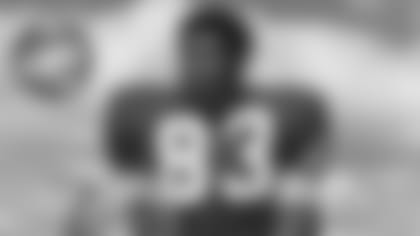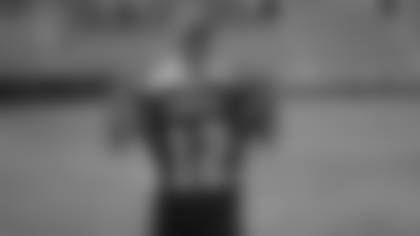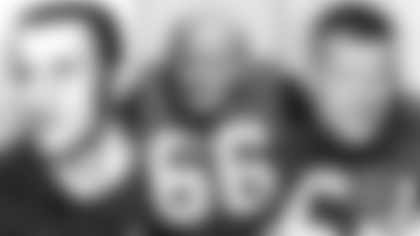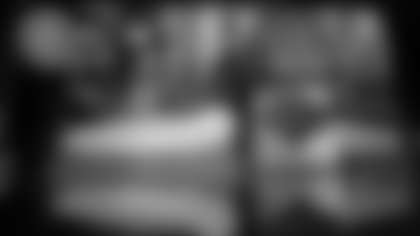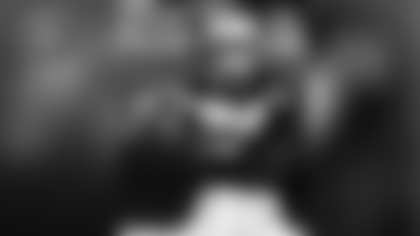Cliff Christl started gathering oral histories with former Packers and others associated with the team in 1996 and will continue to gather them as Packers historian. Excerpts from those interviews will be periodically posted at www.packers.com
When future Pro Football Hall of Fame cornerback Herb Adderley threatened to retire before the 1970 season if he wasn't traded, Packers coach and general manager Phil Bengtson finally accommodated him three weeks before the season opener by trading his perennial all-pro to Dallas for defensive end Clarence Williams and center Malcolm Walker. Williams, who stood 6-foot-5 and weighed 255 pounds, was drafted by the Cowboys in the 11th round in 1969 and spent the season on their taxi squad. In Green Bay, he took over as the starting left defensive end midway through the 1970 season and held the position until No. 1 draft pick Mike Butler replaced him in 1977. Williams was cut in training camp in 1978.
On being traded by the Cowboys: "I wasn't going to play down there. I was glad to come to Green Bay."
On Phil Bengtson, his coach his first year in Green Bay: "He liked to party."
On losing to Washington, 16-3, in an NFC divisional playoff in 1972: "We were playing good ball. Then George Allen put all those men on the line of scrimmage to stop John Brockington and Scott Hunter couldn't throw a pass over 10 yards. We couldn't score. We only had a running game and they stopped our running game. Me and Alden Roche knocked Billy Kilmer out of that game. I remember that hit. I hit him up high and Roche got him down low. He left the game (although knocked cold, Kilmer didn't miss a series). We shut them down pretty good. We had a great defense, too."
On what caused the downfall after 1972: "(Devine) got rid of Dave Robinson for one thing. He started breaking up the defense. (Willie) Buchanon got hurt. I don't think I had a great year after that year. I had solid years. Devine lost control of the team."
On Dan Devine, head coach from 1971 to 1974: "Weird. Sneaky more than anything. I don't think he knew the game. He wasn't a teacher of the game. He relied on his assistant coaches because he was doing other things. He didn't know how to handle players, either. He was devious. He wasn't straightforward with you. He'd say one thing and do another thing."
On teammates claiming Devine offered certain players bonuses in return for their loyalty and promises to say nice things about him in interviews: "I heard that Devine once gave (Gale) Gillingham, $25,000. I heard he gave MacArthur Lane some money."
On Bart Starr, his head coach his final three seasons: Bart Starr: "He was trying to feel his way. I think he was trying to learn how to coach on the job. He was a nice guy. He really relied on his (assistant) coaches and when he started getting rid of them that's when he started doing better. Very smart man. Very well organized. I couldn't fault him on that. He did better as time went along."
On Dave Hanner, his defensive line coach his first two years and then the defensive coordinator: "Old school. He wasn't a fancy coach. He just had us hit the man on the head and go to the ball. He had two or three techniques he taught us and that was it. He had a very simple defense. He didn't want to confuse anybody. He was a simple guy. I think that was good. Sometime an athlete can do something dead wrong and make up for it. You could go against the assignment and make the play. And a lot of times, he'd get upset with guys like Freddie Carr. And especially Ted Hendricks. He couldn't hardly coach (Hendricks). I think they got along, but he just couldn't talk to him."
On Hendricks, who in his one season in Green Bay intercepted five passes and blocked seven kicks: "He was a great player. He played alongside me. He was the linebacker and I was the defensive end. What he could do for me; he covered so much territory and had so much range. He was hard to block. You couldn't knock him off his feet. He pretty much said, 'You go do what you want to do. If you've got the outside, I'll take the outside and inside. Just play ball.' He was just that good. He had great leverage even though he was 6-7 and weighed 225. He could get under pads."
On defensive tackle Bob Brown, who played for the Packers from 1966-73 and struggled with a weight problem, but could be almost unblockable when he was in shape: "He was a nice guy off the field. Get him on the field and he'd kind of lose his mind. He was dominating. When he decided to come, there was nobody who could stop him. Bob was quick off the ball for the first two, three steps. He was highly respected. He didn't do a lot of talking."
On the claim that he sometimes lacked motivation as a player: "A lot of things affect your motivation and play. It's hard to be motivated when things aren't right. Winning was a big motivational factor in 1972 and then a lot of chaos came along. At one point, I wanted to leave. Something came up I didn't like, but I also knew it wouldn't always be better somewhere else."
On why he had some of his best games against future Pro Football Hall of Fame tackle Ron Yary of Minnesota and didn't play so well against some mediocre tackles: "I (played) good against the good football players because I knew they might embarrass me. When I (played) against Yary or Rayfield Wright or (Dan) Dierdorf, the better tackles, I got fired up."
On the end of his career: "I started from the seventh (actually eighth) game of the 1970 season until 1977. Then Mike Butler took over three, four games into the season. (Actually, Butler started the opener, but Williams started four games later in the year at defensive tackle.) I was released in training camp in 1978."
Williams died in 2017 at age 70. The interview here was conducted in 2004.



